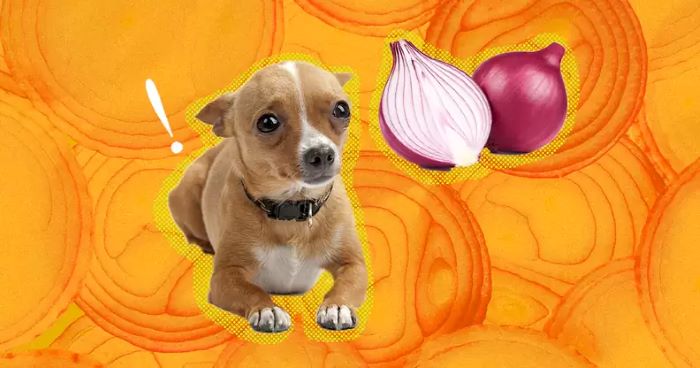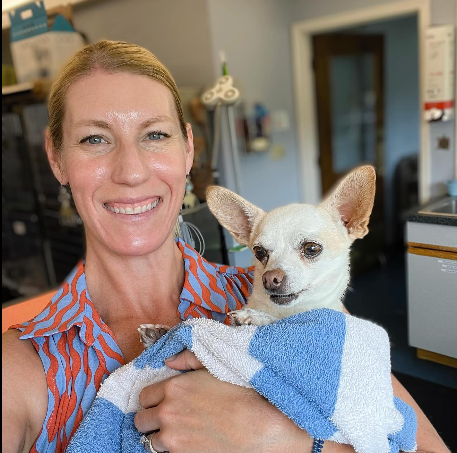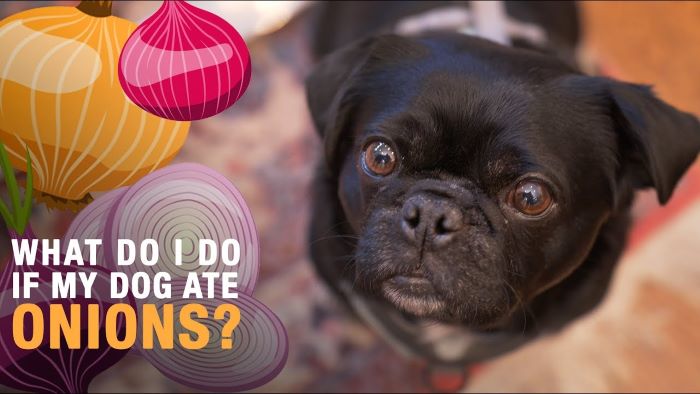It can be frightening to find that your dog has consumed onions. Even though onions are frequently used in human cuisine, they are harmful to dogs and can cause major health issues. An illness known as onion toxicity can be brought on by eating onions or foods that are related to them, such as garlic or chives. Because of the substances present in this illness, which can harm a dog’s red blood cells and cause anemia and other serious health problems, it is quite concerning. The sooner you address the issue of your dog consuming onions, the less dangerous it could become for your pet’s health.
Table of Contents
What Do I Do if My Dog Eats Onions?
Take urgent action if you believe or have proof that your dog has eaten onions. Certain chemicals found in onions might cause serious health problems for dogs. Making prompt contact with your veterinarian or an emergency animal care provider is the first step. Depending on your dog’s size, general health, and the amount of onions consumed, the veterinarian can provide advice. To stop the toxins from being absorbed further, the veterinarian may occasionally cause vomiting. However, if too much time has gone after consumption or if your dog exhibits specific symptoms, it might not be advisable to induce vomiting.
It is important to keep an eye out for signs in your dog, such as diarrhea, vomiting, lethargy, stained urine, or lack of appetite. These might be signs of possible onion toxicity. In order to counteract the effects of onion intake, a veterinarian may advise supportive care, which may include intravenous fluids, medicine to promote blood cell synthesis, or other measures.
Why Can’t Dogs Eat Onions?
Because of some chemicals, onions are quite dangerous for dogs. These substances, including thiosulfate, can cause onion poisoning in dogs. These compounds damage a dog’s red blood cells when they are consumed, impairing both their general health and function. The use of onions can lead to a number of health problems, the most serious of which is the development of anemia.
Anemia is a disorder in which the body’s red blood cells decrease, impairing the body’s ability to carry oxygen. This can therefore result in symptoms such as weakness, lethargy, stained urine, and, in extreme situations, even fatal consequences for the health of a dog.
Therefore, it’s imperative to avoid giving dogs any kind of onion—raw, cooked, or powdered. Onions, even in tiny amounts, can be harmful to a dog’s health. Not only should onions be avoided raw, but foods that contain onions, such as some prepared meals or sauces, should also be avoided in order to reduce the possibility of onion poisoning in dogs. Being watchful of the foods your dog consumes is essential to ensuring their health and preventing any potential health issues associated with onions.
How Much Onion Can Kill a Dog?
A dog’s sensitivity to onions varies depending on a number of factors, including size, age, and individual sensitivity. A dog can get hurt by even a small amount of onion. Although the specific threshold that can be lethal is unknown, it is advisable to completely abstain from giving onions to dogs in order to minimize the possibility of onion toxicity.
The size of the dog and the quantity of onion consumed determine how severe the consequences are. A little dog may be harmed by as little as a few grams, or a larger breed by as little as a few ounces. To protect dogs, it is imperative to keep onions and any meals containing onions out of their reach. It is imperative to seek prompt veterinary assistance to prevent or manage any potential health issues associated to onion poisoning in the event of accidental consumption or if you believe your dog has swallowed onions.
How long after eating onion will a dog get sick?

After eating onions, a dog may experience varying degrees of sickness. It’s possible for symptoms to develop gradually over several hours or days rather than all at once. The quantity of onion consumed, the size of the dog, and the dog’s sensitivity all have a significant impact on the reaction time.
Onion toxicity symptoms may appear within a few hours in certain situations, but they may take several days to manifest in others. These signs, which may point to possible problems associated with onion consumption, include gastrointestinal distress, weakness, lethargy, or stained urine.
Follow These Steps if Your Dog Has Consumed Onions
Assess Your Environment
After your dog has eaten onions, it’s important to check your surroundings to make sure they don’t get access to the dangerous food again. Begin by taking a close look around you, paying particular attention to any places where food is kept or where your pet can have access to it. Make sure everything that contains onions, including onions, is safely stored out of your dog’s reach. This include inspecting the trash cans, cupboards, worktops, and even goods kept on tables or other surfaces in the kitchen. Onion.
Additionally, examine the surroundings outside the home, particularly areas where your dog spends time, such as the yard or garden. Dogs may sometimes come across discarded food or items, so clearing these spaces of any potential onion sources is essential.
Prevent Future Exposure
It’s critical to act quickly after your dog has consumed onions to avoid exposure in the future. First, take a close look around you and make sure that any meals that contain onions are kept safely out of your dog’s reach. This entails inspecting the kitchen, worktops, cupboards, garbage cans, and other anything that may be within the dog’s reach.
It’s critical to teach family members about the risks onions pose to dogs and the value of separating these products from pets. To prevent your pet from accidentally consuming potentially dangerous foods, think about labeling them or keeping them in separate storage.
Seek Professional Assistance
Getting your dog help from a veterinarian is essential if they have eaten onions. Make urgent contact with your veterinarian in order to obtain advice and expert support. Personalized advise from the veterinarian will depend on your dog’s size, health, and the amount of onions he or she has consumed. To stop the poisons from being absorbed any further, the veterinarian may occasionally make a patient throw up. If your dog is displaying specific symptoms or if too much time has passed following ingestion, this might not be advised.
Additionally, the veterinarian may suggest supportive care, which can entail giving intravenous fluids, drugs to boost the synthesis of red blood cells, or other measures to mitigate the effects of eating onions.
Mitigating any potential health hazards associated with onion eating can be achieved by acting quickly and seeking competent advice. If you think your dog may have eaten onions, you should contact a veterinarian right once. This will help to minimize or prevent any negative consequences on your dog’s health.
Follow Your Veterinarian’s Instructions
After your dog eats onions, it’s important to follow your veterinarian’s advice. Your veterinarian’s advice is customized for your dog’s unique circumstances, taking into account things like the quantity of onions consumed and your pet’s overall health. If the dog recently consumed onions, your veterinarian may suggest inducing vomiting as a way to help get rid of the onions before they absorb completely. This, however, might not be appropriate if some symptoms have already started or if some time has elapsed since consumption.
Avoid Home Remedies Treatment
When it comes to dog onion toxicity, home cures are not advised. It’s important to call a veterinarian instead. In order to get rid of any leftover onions in the stomach, the veterinarian may induce vomiting. They may also give the animal activated charcoal to help absorb any toxins in the digestive tract. Supportive therapy, including IV fluids, stomach lining-protecting drugs, and blood transfusions, may be required, depending on the severity.
It’s critical to keep an eye out for signs of onion toxicity in your dog, such as weakness, vomiting, diarrhea, pale gums, lethargy, and difficulty breathing. It is best to err on the side of caution and seek professional veterinarian treatment as soon as possible, even if your dog only consumed a small amount.
What Kinds of Onion Are Toxic to Dogs?
Dogs may become poisoned by any variety of onion, including popular varieties like red, white, and yellow as well as less effective varieties like powdered or dehydrated onions. Onions contain hazardous substances such N-propyl disulfide that harm red blood cells and cause hemolytic anemia.
Can onion poisoning in dogs be treated?
In the event that a dog eats onions, prompt veterinarian attention is important. Supportive care is the mainstay of treatment for onion poisoning, as there is no known cure. Veterinarians may induce vomiting, give IV fluids, activated charcoal to absorb toxins, and in extreme situations, blood transfusions to repair the damaged red blood cells.
How Much Onion Is Toxic to a Dog?
The size, kind, and quantity of onions consumed by the dog all affect how much of them can be hazardous. It’s important to limit a dog’s exposure to onions in their diet, even in small amounts, as they can be hazardous.
What Are the Symptoms of Onion Toxicity?
Weakness, diarrhea, vomiting, pale gums, exhaustion, dyspnea, and in more serious situations, collapse are among the symptoms. Usually, these symptoms appear one or two days after consumption.
Do Onions Cause Permanent Damage to Dogs?
Most dogs recover from onion toxicity without permanent harm if they receive immediate treatment. On the other hand, in extreme situations, postponing treatment may be lethal or cause long-lasting health problems.
What Happens if a Dog Eats Onions?
Eating onions can harm a dog’s red blood cells, leading in anemia and possibly a serious sickness or death. To minimize the consequences and provide the dog the best chance of recovery, prompt veterinarian care is essential.
Conclusion
Given its potential to cause catastrophic injury, onion poisoning in dogs is a serious concern. Onions include components that might cause serious illnesses including hemolytic anemia, which could be harmful to a dog’s health. If any amount of onion is consumed by a dog, immediate intervention is required. There is no safe amount of onion ingestion for dogs, thus the best course of action is to seek emergency veterinary assistance. The likelihood of a dog recovering is significantly increased by prompt treatment, which includes supportive care and measures to mitigate the consequences of onion toxicity. These events can be avoided by being watchful about the foods that are available to dogs and by limiting your exposure to onions. Prioritizing a dog’s health and being aware of the dangers of some human foods, such as onions, is essential to making sure safety and health.

Dr. Allison Kramer is a seasoned veterinarian with a Master’s degree in Animal Behavior and over 10 years of experience specializing in canine health and behavior. Her expertise in positive reinforcement training and holistic care enhances the well-being of dogs and fosters strong pet-owner relationships. For expert advice and valuable insights, follow Dr. Kramer on Instagram @dr.allisonkramer.





